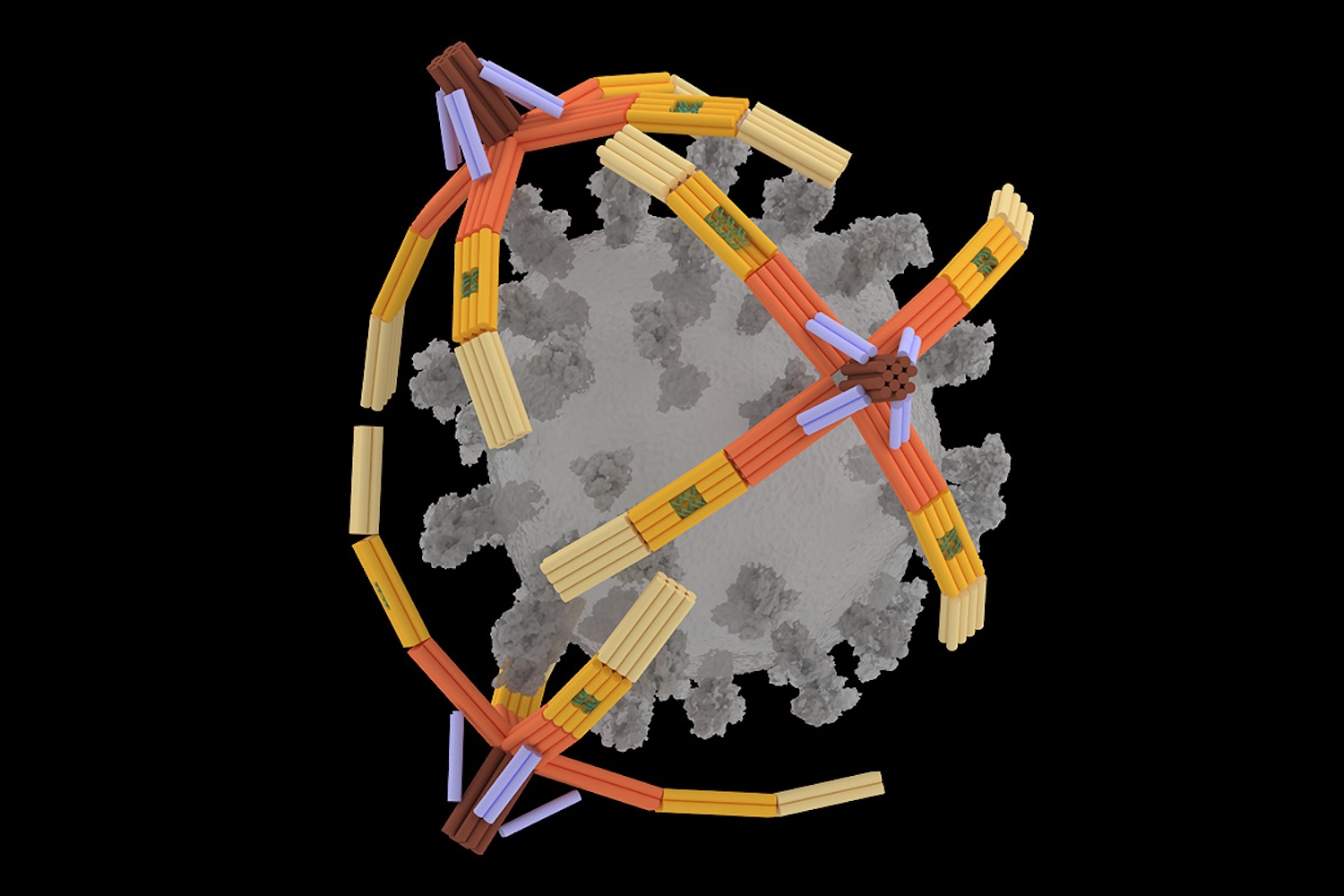The damaging effects of covid-19 will extend beyond the lungs to our brains and minds, scientists are warning. The viral disease may directly affect the nervous systems of some patients both during and post-infection, and the stress of the pandemic and its economic fallout is likely already leading to spikes in anxiety among the general public.
In a new preprint paper released this week in the journal Brain, Behavior and Immunity, researchers Emily Troyer, Jordan Kohn, and Suzi Hong, all from the University of California San Diego, argue that the world is set to face a “crashing wave” of neurological and psychological illness caused by covid-19.
Some of these harms can be attributed to the obvious changes that the pandemic has made to our daily lives, even for people not sickened by the coronavirus that causes covid-19. But there’s a growing sense among doctors and scientists that the virus itself can directly affect our brain health.
“I think we have all recently witnessed a significant shift in our society and economy, which has been associated with distress and fear for everyone,” lead author Troyer, a psychiatrist at UCSD, told Gizmodo. “We don’t want to minimize that, but my colleagues and I were also curious about whether or not individuals who developed covid-19 would experience not only the psychological stress associated with a pandemic, but also other neuropsychiatric symptoms related to the effects of the virus or host immune response on the nervous system.”
Past pandemics caused by viral respiratory illnesses such as the flu, Troyer and her co-authors noted, have been closely linked to reported spikes of neurological or psychiatric symptoms such as brain damage, mood changes, or muscular dysfunction. In many cases, these symptoms have happened during someone’s initial infection; other times, they happen post-infection. And we’re starting to see the same pattern with covid-19 emerge. Rarely, confirmed covid-19 patients have also had brain swelling, strokes, or seizures, while many more patients have reported a loss of smell or taste, which can be caused by neurological damage.
The authors lay out a few theories for how this is happening. Some evidence has suggested, for instance, that the coronavirus can slip past the blood-brain barrier and infect nerve cells directly. Another theory is that the immune system overshoots its response to the virus, causing systemic damage throughout the body, including to the brain. They also theorize that certain immune cells can become infected, migrate to the brain, and then trigger dangerous inflammation. Another less supported but plausible theory is that the coronavirus damages the gut microbiome, which then affects the brain.
All these explanations could be true to some extent. But even making it through the initial infection relatively healthy may not spare you from neurological problems down the line. Some viral infections, including the flu, are rarely known to trigger later autoimmune disorders that affect the brain and nervous system, which can cause muscle weakness, chronic pain, and even paralysis.
Beyond those concerns, the pandemic is also affecting people’s mental health. Millions have seen covid-19 sicken or kill their family and friends, with many unable to be with their loved ones as they died or attend funerals in person, due to the aggressive measures needed to slow down person-to-person transmission. These same measures have shut down or curtailed non-essential businesses, dramatically changing most people’s daily lives and devastating many financially. In countries like the U.S., with weak worker protections, these lockdowns have led to the highest unemployment rates seen since the Great Depression.
Already, the authors note in their paper, there have been some reports of suicides among people worried about having the illness or catching it. Essential workers, including in health care, are also reporting high levels of stress and burnout related to covid-19, as many struggle with meager pay and risky working conditions that leave them exposed to the virus.
“This pandemic is a potential source of direct and vicarious traumatization for everyone,” the authors wrote.
Because we’re still in the early stages of this pandemic, it may take a long time before we can know how commonly these neurological afflictions are happening among covid-19 patients, especially those post-infection. One unanswered question is whether these complications happen more in people infected with the novel coronavirus, called SARS-CoV-2, than they do in people with other cold and flu viruses. But compared to other recent outbreaks of deadly coronaviruses like SARS and MERS, the scale of this coronavirus pandemic is significantly greater, Troyer said.
By raising awareness of these problems now, the authors hope that the medical community keeps a close eye on the brain health of covid-19 patients moving forward.
“We also want people to be aware that the nervous system could be involved in COVID-19, so we hope people will talk to their physicians about any emotional, behavioral, cognitive, or sensorimotor symptoms they might have over the course of their recovery,” Troyer said. “We don’t want to cause people more worry—we just want people to know to talk to their healthcare providers about these kinds of symptoms if they arise, and together we will get through this.”
If you or someone you know is having a crisis, please call the National Suicide Prevention Lifeline at 800-273-8255 or text the Crisis Text Line at 741-741.














